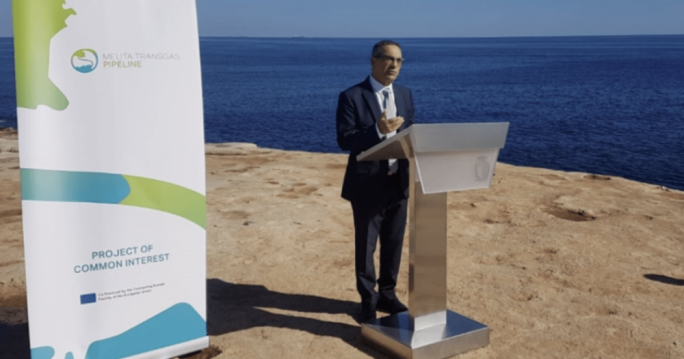IIP: plucking the goose that lays the golden egg
It is an open secret that Malta lost the lucrative Asian market as the latter prefer to invest in cheaper property schemes for residence and passport packages offered in Turkey

The European Commission is recommending a “phasing out” of Malta’s citizenship sale scheme, in a letter sent to the government. The government’s decision to draw a line under the existing Individual Investor Programme – prompted parliamentary secretary Alex Muscat to say the government was “scrapping” it.
Under the new scheme, applicants who invest €750,000, up from €650,000 under the existing rules, will be able to apply for citizenship after living in Malta for one year. Another amendment targets those applicants who invest €600,000 will now have to spend three years in Malta before applying for a passport. Rent option has gone up to €18,000 annually.
The minimum value of the property purchased will double to €700,000 from €350,000. A €10,000 philanthropic donation will be mandatory.
There has been a background of EU correspondence on the subject for the past year. In fact, Justice Commissioner Didier Reynders confirmed during a recent European Parliament Civil Liberties and Justice committee debate that the Commission had written to Malta, Bulgaria and Cyprus about transition away from such schemes.
Reynders said the commission has received feedback from all three countries about the request. A European Parliament delegation had described Malta’s scheme as risking “importing criminals and money laundering into the whole EU”.
Last November, a magisterial inquiry was opened after one of the scheme’s agents was secretly filmed at their offices in Valletta, boasting about how his high-level connections could facilitate the application process.
In the local scene, 170 IIP agents have signed and pay an annual licence to promote the IIP scheme yet the interest has waned and only about 50 are active. All this needs to be factored in the light of stiff questions by the Moneyval team on the AML due diligence and transparency.
It is not a level playing field since most IIP agents face uphill struggles and stiff competition from other much cheaper EU countries offering citizenship by investment such as Bulgaria, Greece, Ireland and Cyprus. The latter offer much easier terms to naturalise applicants hailing from outside the EU. It is an open secret that Malta lost the lucrative Asian market as the latter prefer to invest in cheaper property schemes for residence and passport packages offered in Turkey.
A case in point is the recent visit by Vĕra Jourová, EU Justice Commissioner who stated inter alia that “We must not enable suspicious people to acquire European citizenship through an easy way and use it to launder money or to pose some sort of security threats to the continent”.
The irony is that the sole concessionaire for Malta ie Henley & Partners has been a great success story and reaped more than €32 million in fees (apart from legal and due diligence charges) and organises global conferences which are all personally addressed by the Prime Minister. The latter rebuts criticism that he is making undue preferences by saying such service is free.
Needless to say, no such patronage is on offer to the rest of unremunerated agents who on their own steam also fund similar events. It dawned on the opposition that tax payers are footing the travel and first class accommodation bills for the ex-prime minister yet Henley continues to collect 8% on all its passport revenues as stipulated in its contract which runs to 2023.
Magnanimously, Joseph Muscat the ex-prime minister, showers positive comments each time he addresses delegates at Henley & Partners global events. He proudly announces that Malta’s due diligence structure is next to the gold standard. Not so salubrious was a report published by Transparency International and Global Witness 2018.
It looked at various aspects of the schemes offered by Cyprus, Malta and Portugal, and the flaws or loopholes in each, stressing that “insufficient due diligence, wide discretionary powers and conflicts of interest” could open Europe’s door to the corrupt. Every time the media ups the ante, the MIIPA in its circulars harks the agents to do their calling to properly sift all applications.
It officially reminds them that they have a duty, as representatives of the industry, to rebut incorrect information which makes it to the public sphere. It frequently finetunes internal application forms in a drive to collect more details. Applicants may now rely on a benefactor to make the investment on their behalf.
It is noted that while the benefactor is thoroughly checked on a declaration of sources of wealth and funds, yet the law (as it stands now) does not require enhanced due diligence on the benefactor. In conclusion, nobody harbours any doubts that the passport scheme enriched the country with extra capital flows as each passport generates a substantial sum to the National Development and Social Fund. During the Covid pandemic, four-fifths of income from Malta’s cash-for-passports scheme is going into the government’s account to cushion the economic cost of paying out wage supplements.
The 4/5th rate is a temporary measure, because under normal circumstances, just 30% of income from the Individual Investor Programme scheme goes into the government’s account (Consolidated Fund). The bulk of income, 70%, is held and invested by the National Development and Social Fund.






